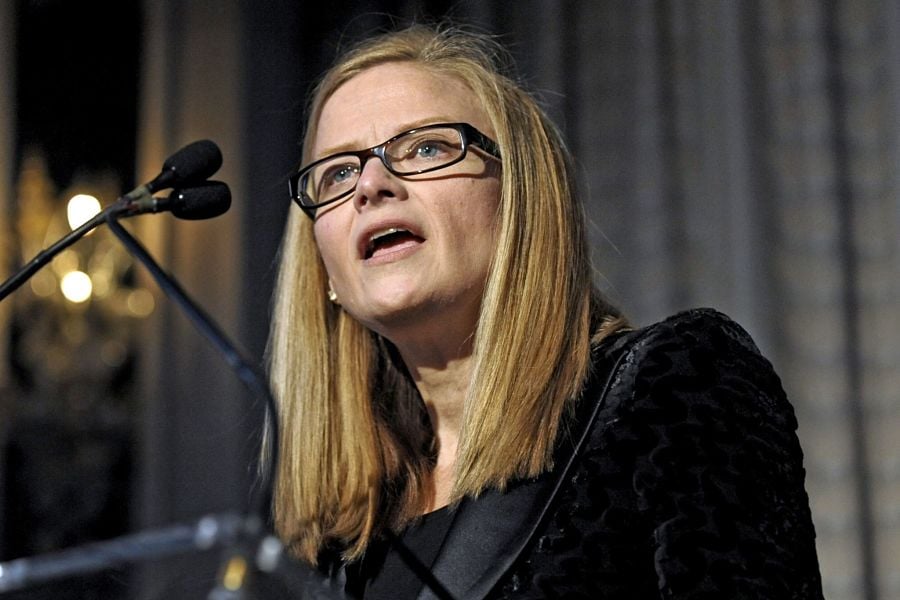

Wells Fargo & Co.’s former head of retail banking, Carrie Tolstedt, agreed to pay $3 million to settle a Securities and Exchange Commission case over misleading investors about a key metric the lender used to gauge success.
The settlement, which is subject to court approval, follows Tolstedt’s agreement in March to plead guilty to obstructing a probe of the bank’s practice of opening millions of accounts for customers without their authorization. Tolstedt faces as long as 16 months in prison under her plea agreement, according to a statement from the Department of Justice at the time. Her sentencing is set for September.
Enu Mainigi, Tolstedt’s lawyer, didn’t immediately respond to a phone message and email seeking comment on the settlement. She neither admitted nor denied the SEC’s allegations in the settlement.
Wells Fargo agreed to pay $3 billion in penalties in 2020 after the government brought cases against the bank for opening checking and credit accounts without customers’ authorization to meet aggressive sales goals. A representative for the bank declined to comment on the SEC’s settlement with Tolstedt.
“Companies do not act on their own. Where the facts warrant it, we will hold senior executives accountable for conduct that violates the securities laws,” Monique C. Winkler, head of the SEC’s San Francisco office, said in a statement.
The SEC alleged that Tolstedt made public statements and signed disclosures that misled investors about a metric of the financial success of the San Francisco-based bank. The regulator said that she knew, or was reckless in not knowing, that the measure was inflated by accounts and services that were “unused, unneeded, or unauthorized.” Her alleged misconduct occurred between 2014 and 2016, the SEC said.
In addition to the $3 million fine, the SEC said that Tolstedt agreed to pay back ill-gotten gains of almost $1.5 million, plus interest of about $450,000.

Wells Fargo, Commonwealth, UBS are the firms losing advisor teams.

Firms are facing increasing scrutiny over whether they can be held responsible for losses by clients whose ability to understand their investments has been compromised.

Decision deepens the two firms’ decade-long relationship

Linqto Inc. was one of the first tech platforms to promise access to small investors into the high-risk, high-reward world of private investments.

Since Vis Raghavan took over the reins last year, several have jumped ship.
Stan Gregor, Chairman & CEO of Summit Financial Holdings, explores how RIAs can meet growing demand for family office-style services among mass affluent clients through tax-first planning, technology, and collaboration—positioning firms for long-term success
Chris Vizzi, Co-Founder & Partner of South Coast Investment Advisors, LLC, shares how 2025 estate tax changes—$13.99M per person—offer more than tax savings. Learn how to pass on purpose, values, and vision to unite generations and give wealth lasting meaning
